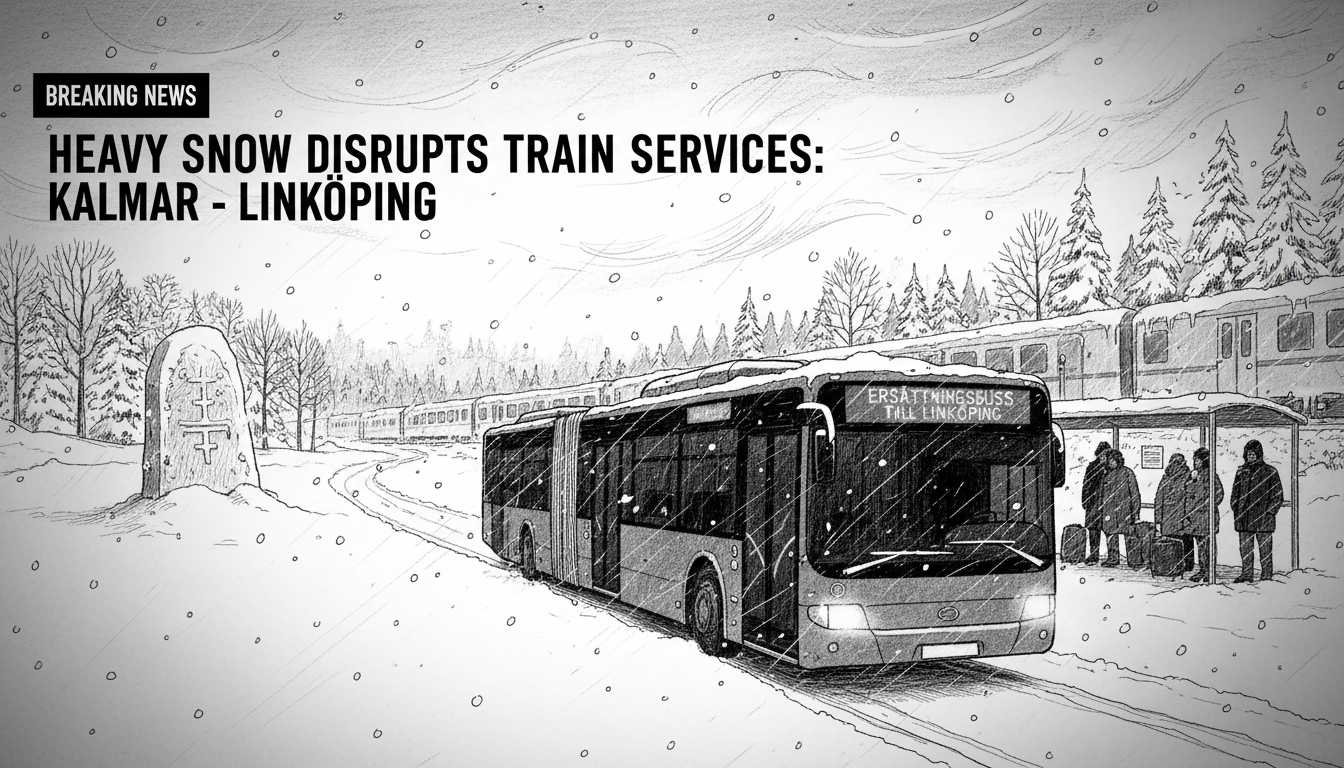A severe snowstorm has forced the cancellation of all train services between Kalmar and Linköping in southeastern Sweden. Transportation authorities have implemented replacement bus services along the affected route. The disruption also impacts train connections between Linköping and Västervik, with buses replacing trains throughout Thursday afternoon.
The ongoing winter storm represents a significant challenge for Sweden's transportation infrastructure during peak winter conditions. Heavy snowfall has created hazardous travel conditions across the region. Transportation officials made the decision to suspend rail services after assessing safety risks.
This type of weather disruption highlights the vulnerability of Sweden's transportation network during extreme winter conditions. The Kalmar-Linköping route serves as a crucial connection between coastal and inland communities. Travelers face extended journey times and potential complications with connecting services.
Swedish transportation authorities maintain contingency plans for weather-related disruptions. Replacement bus services typically operate on modified schedules. Passengers should expect longer travel times and potential crowding on alternative transport.
The timing of this disruption during weekday travel creates additional complications for commuters and business travelers. Many passengers rely on these train connections for daily work commutes and regional business activities. The switch to bus transport presents accessibility challenges for some travelers with mobility issues.
Sweden's railway system faces regular weather challenges during winter months. Infrastructure investments in recent years have focused on improving winter resilience. Yet severe storms continue to test the system's capacity to maintain normal operations.
Travelers should monitor official transportation updates for the latest information. Transportation officials typically provide real-time updates through digital platforms and station announcements. The duration of these service changes depends on weather conditions improving and crews completing necessary track clearance operations.
Regional transportation disruptions of this scale affect local economies and daily life. Businesses that depend on reliable transportation networks may experience temporary challenges. The situation serves as a reminder of nature's impact on modern infrastructure systems.

